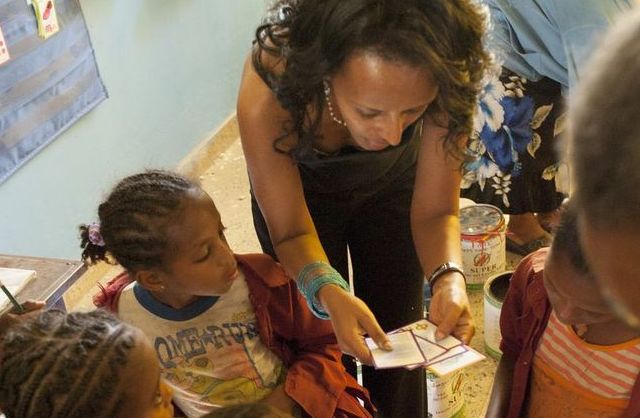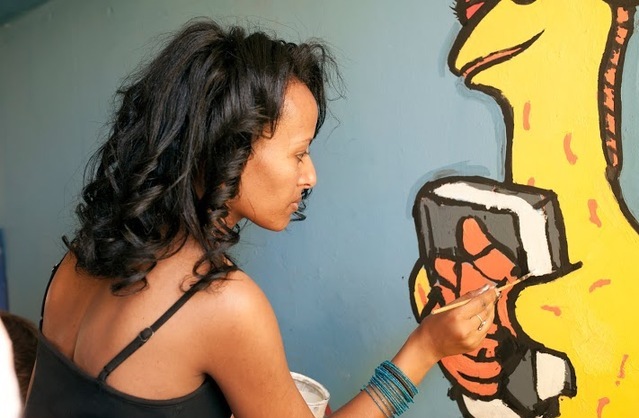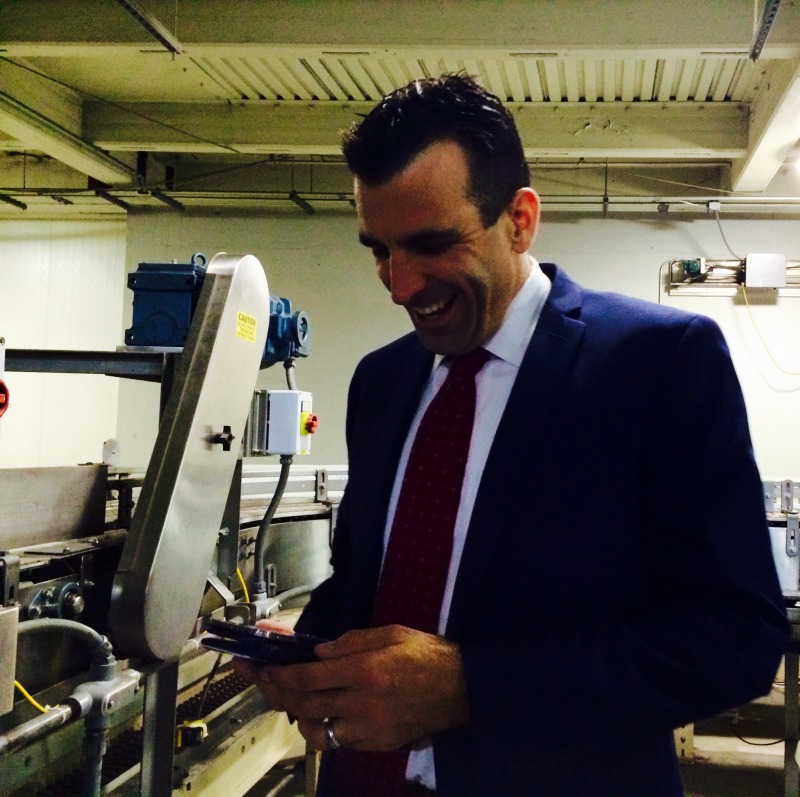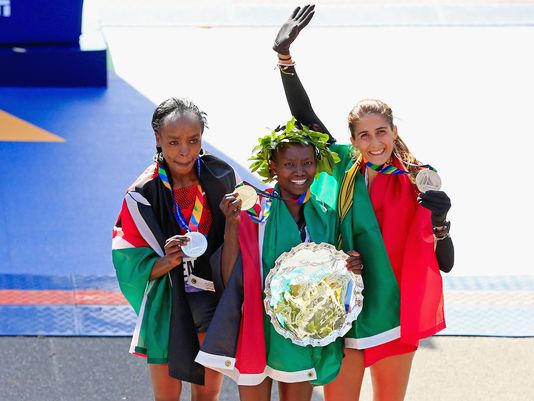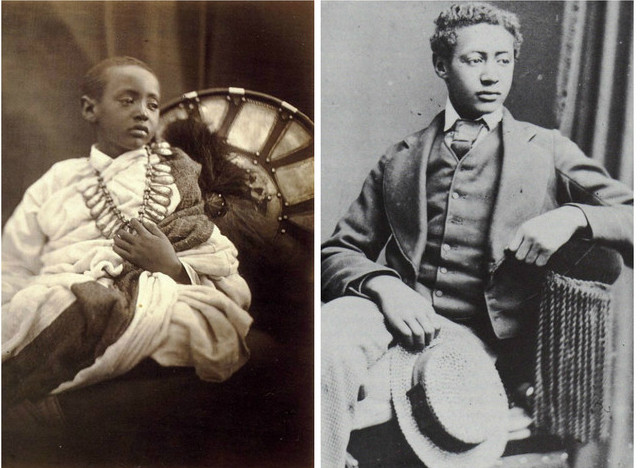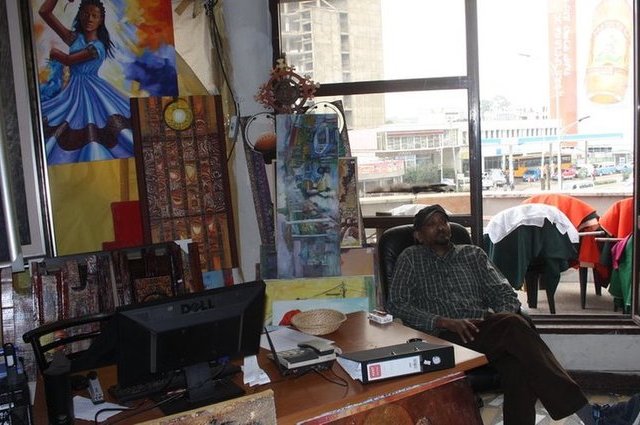VOA News
By Pamela Dockins
October 07, 2014
STATE DEPARTMENT— There is more fallout from a shooting last month near the Ethiopian Embassy in Washington that resulted in the embassy security attache being sent home. The incident sparked rival protests Tuesday near the U.S. State Department, with one group urging the United States to do more to protect the diplomatic compound.
As they waved banners and the Ethiopian flag, about 20 protesters calling themselves Ethiopians for Peace called for more security at the Ethiopian embassy in Washington.
Moulou Assefa said an incident, which resulted in an embassy staffer firing shots at protesters, never should have happened.
“We felt like we had been violated. We had been let down by the [U.S.] Secret Service. They should have protected the embassy,” said Assefa.
He said his group is not against protests, but feels that demonstrators should not be allowed to, in his words, “occupy” embassy grounds.
“Literally, there was a fight. They just took down the Ethiopian flag and they were trying to replace it. This is unheard of,” said Assefa.
As he spoke, about 15 people who were part of that embassy confrontation held a counter-demonstration across the street.
Elizabeth Altaye said they had a warning for the United States concerning the TPLF, the main branch of the Ethiopian government’s ruling party.
“I am protesting to tell America and the American people, TPLF is a terrorist group. [They] take over and become a government and [are] still terrorizing East Africa.”
The two sides were separated by police barricades as they voiced their opposing views.
—
Diplomat Memo: Ambassador Girma Biru on DC Ethiopian Embassy Shooting

Ethiopia’s ambassador to the US, Girma Biru. (Diplomat News Network)
Diplomat News Network
Washington (Agencies + DIPLOMAT.SO) – The Ethiopian government has pointed its finger at Eritrea and Ethiopian opposition groups over a disturbance that took place at the Ethiopian embassy in Washington.
Ethiopia’s ambassador to the US, Girma Biru, said around 15 people had been involved in the incident, which occurred at the embassy on Monday.
“They first went to the consular service office and rudely demanded to speak to the ambassador. And when the officer told them that they needed an appointment, they insulted him and went out and tried to take down the Ethiopian flag,” he said.
US security forces subsequently took members of the group into custody after they refused to leave peacefully.
The culprits were detained for an hour, with authorities recording their names and addresses, before they were released.
According to the ambassador, no legal demonstration had been planned on the day in question and group members are known to US authorities.
He further went onto saying that the culprits were mercenaries of Eritrea and Ethiopia opposition groups who are reportedly upset by the successful outcome of recent discussion between the leaders of Ethiopia and the United States on boosting cooperation in the areas of trade, peacekeeping and fighting terrorism.
“The individuals are lackeys of few political parties and Shaebia (Eritrea) who use cheap and nasty language to insult Ethiopian government officials that come to the country for business,” he said.
The ambassador said the attack was as a “desperate act” in response to the growing relationship between the two countries.
—
Ethiopian Diplomat Flees US to Dodge Prosecution, US Official Confirms
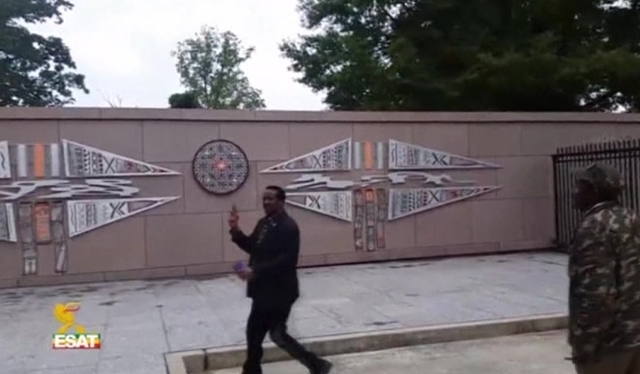
A 46-year-old security attache for the Ethiopian Embassy in DC, Solomon Tadesse, whom authorities charged in connection with a Sept. 29 shooting near the building, has left the country, officials said.
The Hill
By Mario Trujillo
An Ethiopian diplomat who allegedly fired a gun during a protest this week at his country’s embassy in Washington, D.C., has left the United States to escape prosecution.
The State Department on Thursday confirmed that it had asked Ethiopia to waive the diplomat’s immunity so he could be prosecuted in U.S. courts, which was refused.
“In this case, we requested a waiver of immunity to permit prosecution of the individual involved in that incident,” State Department press secretary Jen Psaki said. “The request was declined and the individual involved has now left the country.”
Diplomats are expelled from the United States when their host country declines to waive diplomatic immunity.
Psaki, who did not identify the diplomat, said once expelled, individuals typically are not allowed back to the U.S. for any other reason but prosecution.
The Secret Service responded to reports of a gunshot at the Ethiopian Embassy compound on Monday and detained an individual believed to have fired the shot.
No injuries were reported from the incident, which was partially caught on camera with a man in a black suit wielding a handgun amid a small crowd of people before the gunshot is heard.
Reuters reported the man turned himself into authorities but he was not arrested because of his diplomatic immunity.
Ethiopian-Diplomat Flees US After Embassy shooting, State Department Official Says (AFP)
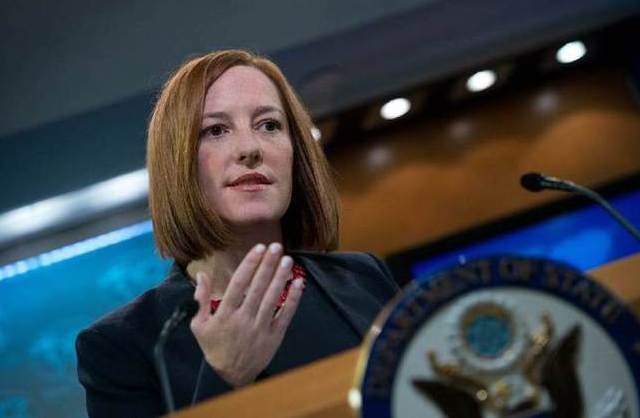
US State Department spokeswoman Jen Psaki. (Getty Images)
Washington – An Ethiopian diplomat who opened fire to quell a protest outside his country’s embassy in Washington has left the United States to avoid prosecution, a US official said Thursday.
Secret Service agents arrested the man on Monday after shots were fired in the air in the embassy’s outside compound in the US capital.
Video shown by Ethiopian television ESAT showed a man brandishing and firing a handgun as a small crowd of protesters took down the Ethiopian national flag.
State Department spokeswoman Jen Psaki said her bureau had requested that Addis Ababa lift the man’s diplomatic immunity “to permit prosecution of the individual involved in that incident.”
The “request was declined” and in line with State Department regulations “the individual involved has now left the country.”
Psaki gave no further details about the shooting or the person involved.
Read more »
—
Ethiopian Embassy security attache charged in shooting at building – The Washington Post
The Washington Post
By Victoria St. Martin
A 46-year-old security attache for the Ethiopian Embassy, whom authorities charged in connection with a Sept. 29 shooting near the building, has left the country, officials said.
A spokesman for the U.S. Attorney’s Office said the attache, Solomon Tadesse G. Silasse, was charged with assault with intent to kill while armed in connection with a shooting outside the embassy on International Drive NW.
Bill Miller, a spokesman for the U.S. Attorney’s Office, said Silasse has diplomatic immunity. Jen Psaki, a spokeswoman for the State Department, said authorities requested a waiver of immunity to prosecute Silasse, but the request was denied.
Read more and watch video at The Washington Post »
—
Related:
Video: Shot Fired outside Ethiopian Embassy in Washington, .D.C (FOX)
DC News FOX 5 DC WTTG
Join the conversation on Twitter and Facebook.
